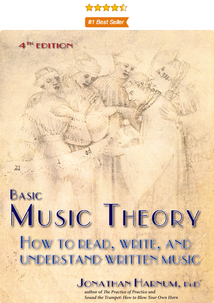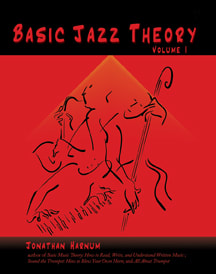Learn to read music or Boost your command of Music theory
Learning to read music can be fun and even exciting. I've been teaching people to read music for over 25 years and it's still one of my favorite subjects.
If you're a total newbie you'll be reading in no time, usually after just a couple lessons. Or maybe you want to understand concepts like key signatures, chords and scales, or topics like tritone substitutions, chord extensions, or the Circle of Fifths, and jazz theory. There is a Music Theory Track for you. Check them out below.
Just like with all the other Tracks, if you take this track with a friend or two, you all get a discount. Learning with others is not only more fun, it's more effective, too.
I've written two books on reading music, and each is free when you sign up for any of these tracks. See which track is for you below.
If you're a total newbie you'll be reading in no time, usually after just a couple lessons. Or maybe you want to understand concepts like key signatures, chords and scales, or topics like tritone substitutions, chord extensions, or the Circle of Fifths, and jazz theory. There is a Music Theory Track for you. Check them out below.
Just like with all the other Tracks, if you take this track with a friend or two, you all get a discount. Learning with others is not only more fun, it's more effective, too.
I've written two books on reading music, and each is free when you sign up for any of these tracks. See which track is for you below.
1: Learn to read music: absolute beginners
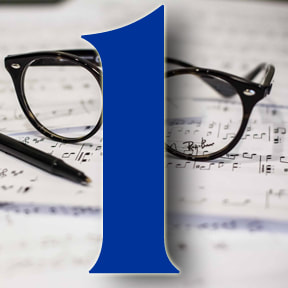
Even if you've never read music before, you'll be reading and performing written music by the time we finish up, guaranteed. You'll even begin to be able to write down what you hear. It's all in a hassle-free, no-pressure setting.
We cover musical elements that can be shown with written music: rhythm, melody, harmony, and dynamics, as well as touching on things written music doesn't convey well: tone, timbre, and feeling.
We cover musical elements that can be shown with written music: rhythm, melody, harmony, and dynamics, as well as touching on things written music doesn't convey well: tone, timbre, and feeling.
2: Written music for intermediate players
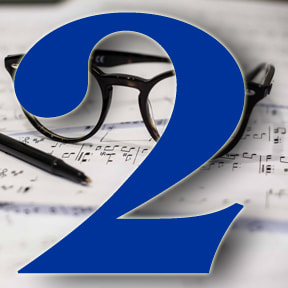
So maybe you've gotten a handle (Handel?) on written music but want to take things to the next level. In this Track we'll tackle trickier concepts: key signatures (how to name them, create them, and use them); more complex time signatures like 6-8 and cut time; we'll start your ear training, too, which means we need to cover basic intervals; and finally, we'll start working with major and relative minor scales, and the mysterious Circle of Fifths.
If you're looking to give your music-reading chops a boost, this is the Track for you. Good for players with 2-3 years of experience.
If you're looking to give your music-reading chops a boost, this is the Track for you. Good for players with 2-3 years of experience.
3: Music theory for intermediate to advanced players
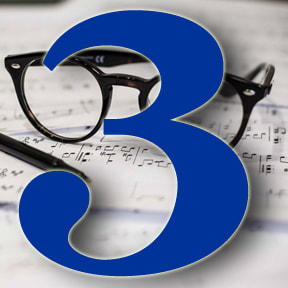
This track is mostly about harmony: chords and their many uses and chord progressions. We'll learn a few more intervals like diminished and augmented, and how those are used in both chords and scales, too.
We'll also delve into other scale types, including melodic and harmonic minors, pentatonics (major and minor), whole tone scales, diminished scales, as well as modes, and scales from non-Western cultures, like the In-sen and/or the Persian scale.
We'll also delve into other scale types, including melodic and harmonic minors, pentatonics (major and minor), whole tone scales, diminished scales, as well as modes, and scales from non-Western cultures, like the In-sen and/or the Persian scale.
4: Jazz theory
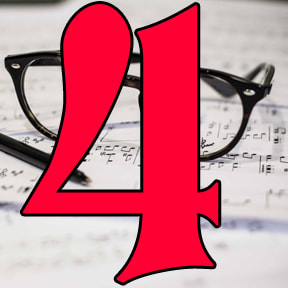
This track is customized according to the needs and goals of those who enroll. Performance is a part of this Track, using what you learn.
This track is especially helpful for those who want to improvise in jazz or any other genre. If you want a better understanding of jazz theory, or be a better improviser, this is the track for you.
Subjects include improvising, the blues, rhythm changes, jazz standard repertoire, chord progressions, modes, tritone substitutions, the use of diminished, bebop, and other scales, and more topics. Sign up and we'll chat about what you'd like to learn.
This track is especially helpful for those who want to improvise in jazz or any other genre. If you want a better understanding of jazz theory, or be a better improviser, this is the track for you.
Subjects include improvising, the blues, rhythm changes, jazz standard repertoire, chord progressions, modes, tritone substitutions, the use of diminished, bebop, and other scales, and more topics. Sign up and we'll chat about what you'd like to learn.
